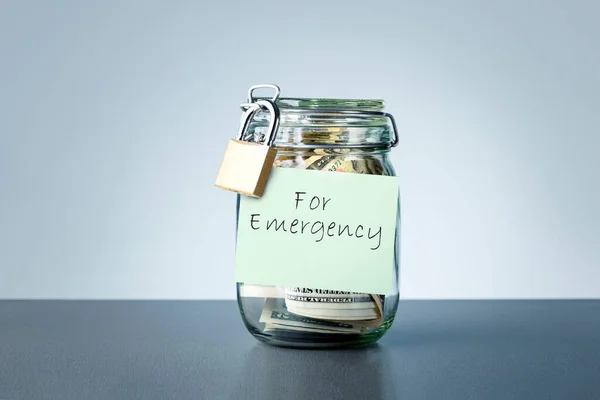When it comes to personal finance, having an emergency fund is essential. An emergency fund is a stash of money that you can rely on in case of unexpected expenses. It’s like having a safety net for your finances and can be the difference between getting through tough times and financial disaster. In this blog post, we will discuss the importance of having an emergency fund and how to start building one.
What is an emergency fund and why do you need one?
An emergency fund is a financial cushion that provides you with peace of mind and protects you from unexpected expenses. It is a safety net for your finances, helping you navigate through challenging times without sinking into debt or financial crisis.
Having an emergency fund is crucial for several reasons. Firstly, it provides you with a sense of financial freedom. Knowing that you have a reserve of money set aside for emergencies allows you to handle unexpected situations with confidence, without worrying about how you will pay for them.
Secondly, an emergency fund prevents you from relying on credit cards or loans to cover unexpected expenses. By having cash readily available, you can avoid high-interest debt and maintain your financial stability.
Ultimately, an emergency fund is a key component of a strong financial foundation. It provides you with the stability and security you need to thrive in both your personal and professional life.
How much should you have in your emergency fund?
When it comes to determining how much you should have in your emergency fund, it ultimately depends on your individual financial situation. However, a general rule of thumb is to aim for three to six months’ worth of living expenses. This will provide you with a cushion to cover your bills, groceries, and other essential expenses in the event of an emergency or unexpected financial setback.
Having this amount saved up will give you a sense of financial freedom, knowing that you have enough to get by without relying on credit cards or loans. It’s important to assess your personal circumstances, such as your monthly expenses and income, to determine a realistic goal for your emergency fund. Remember, the more you have saved, the better prepared you’ll be for any unforeseen circumstances that may arise.
Benefits of having an emergency fund for Canadian entrepreneurs
Having an emergency fund is particularly beneficial for Canadian entrepreneurs. As a business owner, you face unique financial challenges, and having an emergency fund can provide you with peace of mind and a sense of financial freedom.
By having a safety net of funds set aside, you can navigate unexpected situations such as a sudden decrease in revenue or unforeseen business expenses without putting your business at risk. This allows you to maintain stability and focus on growing your business instead of worrying about how to cover unexpected costs.
An emergency fund also helps you avoid relying on high-interest loans or credit cards to handle emergencies, saving you from unnecessary debt and ensuring the financial health of your business. By prioritizing the creation of an emergency fund, Canadian entrepreneurs can protect themselves and their businesses from financial uncertainty and set themselves up for long-term success.
Common emergency situations
As a Canadian entrepreneur, you may face various emergency situations that can have a significant impact on your business and personal finances. One common emergency situation is a sudden decrease in revenue. This can occur due to factors beyond your control, such as a market downturn or a decrease in consumer demand. Without a safety net in place, this decrease in revenue can quickly lead to financial strain and potentially even the closure of your business.
Another common emergency situation for Canadian entrepreneurs is unexpected business expenses. These expenses can range from equipment breakdowns to legal issues, and they often require immediate attention and financial resources. Having an emergency fund can help you cover these expenses without putting your business at risk.
Furthermore, personal emergencies can also impact your business as a Canadian entrepreneur. Whether it’s a health issue or a family emergency, having an emergency fund can provide you with the financial security and flexibility to handle these situations without compromising your business.
Tips on how to start building your emergency fund
If you’re a Canadian entrepreneur looking to start building your emergency fund, here are some tips to get you started. First, create a budget and determine how much you can realistically set aside each month. Start small if you need to, but be consistent in saving a portion of your income. Look for ways to cut back on unnecessary expenses and redirect those funds towards your emergency fund. Consider automating your savings by setting up automatic transfers to a separate savings account. This way, you won’t have to rely on willpower alone. Finally, stay committed to your goal and resist the temptation to dip into your emergency fund for non-emergency situations. By following these tips, you’ll be on your way to building a strong safety net for your business and personal finances.
Overcoming common obstacles to building an emergency fund
Building an emergency fund can seem daunting, but it’s important not to let fear hold you back. There are common obstacles that may make it challenging to start or continue building your emergency fund, but they can be overcome. One common obstacle is the fear of not having enough money to contribute to the fund. Remember, starting small is better than not starting at all. Even setting aside a small amount each month can make a difference over time. Another obstacle is the temptation to dip into the fund for non-emergency expenses. It’s important to stay committed to your goal and resist this temptation. By keeping your emergency fund separate from your regular accounts and using self-discipline, you can ensure that it remains intact for its intended purpose. Lastly, fear of unexpected expenses or emergencies can make it difficult to prioritize saving for an emergency fund. However, having a safety net in place will give you peace of mind and protect you from financial disaster. By facing these obstacles head-on and staying focused on your goal, you can overcome them and build a strong emergency fund for your financial security.





